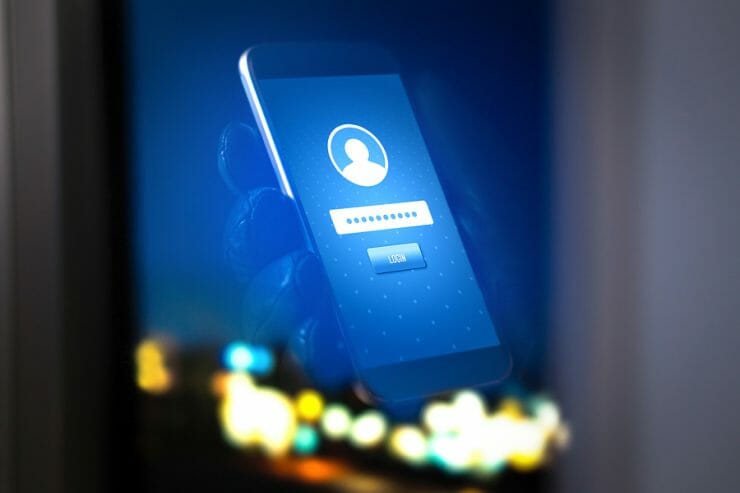Identity theft is the fastest growing crime in America, with a majority of it occurring online. Today, with technology and social media becoming increasingly advanced, it can be a challenge to stay safe. What can you do to prevent identity theft and fraud? Keep reading for additional information regarding this topic.
What is Identity Theft?
Identity theft occurs when someone steals and poses dishonestly as another person by using their name and their personal information without direct permission of that individual for fraudulent purposes. Such examples include: Investment Fraud, Credit Card Fraud, Passport Fraud, Telephone Fraud, Tax Fraud, Mail Theft as well as Social Security Number Misuse. The penalties for identity theft in Pennsylvania can vary depending on the total value of possessions allegedly obtained by using false identification. Plus a fine could range anywhere from $2,000 to $25,000 along with jail time from 5 years up to 10 years, yet the problem persists.
Who Is At Risk?
We are all at risk, but due to the “booming” senior population, especially in states like Pennsylvania, seniors unfortunately make up a large percentage of these victims. They’re targeted for a number of reasons. First, they may be struggling with cognitive impairments such as dementia or memory loss, which can then impair their decision-making. Also, thieves may prey on them because of loneliness and isolation. So when a senior sees “someone in need” or that person is seeking their attention, it can reel them right in. Additionally, many grew up in an era where a hand shake or someone’s word meant a lot and therefore may be more trusting than they should be. Lastly, as technology evolves, thieves have become more hi-tech, so online information is becoming much easier to steal and because many older adults aren’t as tech savvy, they may unknowingly leave themselves open for these types of attacks.
How Can I Prevent Identity Theft?
To help prevent theft and fraud, you should consider a few of these precautionary steps. First, be careful creating usernames, passwords and/or Personal Identification Numbers (PIN). Do not use birth dates, Social Security numbers, your email address, or words, names or phrases that might be easy to guess. Use a combination of numbers, letters and symbols. Second, if you have financial paperwork lying around that contains personal information, shred these documents before disposing them. It seems like such a silly step to take yet, it can make all the difference in the world. Third, safeguard your Social Security number as though your life depends on it because in a way, it does. Do not keep your Social Security number in your wallet, purse or handbag. In fact, don’t even write your SSN on a check, as this can put you at risk. Lastly, refrain from exchanging sensitive information through the mail, over the internet, through the phone or on other social media unless you specifically know the person you are dealing with and you are aware of why they are in need of this information.
Also around tax season, there have been a number of “IRS” scams stating they owe money and if they do not pay immediately you’ll be jailed or fined. This is a scam. The Internal Revenue will not contact you via social media, phone call or email. If they need to reach you, it will be by letter.
What Do I Do If I Suspect Identity Theft is Occurring?
One of the best things to do if you are suspicious is to be vigilant and proactive. The longer you wait, the more damage can be caused and thus the more money you can lose. The next thing you might be wondering is who do I contact? That depends. Based on the type of identity theft that is occurring, there are different organizations that are specifically geared towards eliminating that issue of identity theft and/or fraud. For instance, in order to contact someone about tax fraud, contact the Internal Revenue Service (www.irs.gov/uac/Identity-Protection). On the other hand, if you’re dealing with mail theft, you may want to contact the U.S. Postal Inspection Service (www.postalinspectors.uspis.gov).
Here are some additional resources to contact if you are in need of further assistance regarding identity theft and/or fraud. Remember, it’s always better to be safe than sorry. So if you are having any kind of inkling of this occurring, then please reach out to someone!
- Investment fraud – Contact the U.S. Securities and Exchange commission at sec.gov.
- Mail theft – Contact the U.S. Postal Inspection Service at postalinspectors.uspis.gov
- Passport fraud – Contact the U.S. Department of State at passports.state.gov
- Telephone fraud – For cellular phones and long distance service, contact the Federal Communications Commission at fcc.gov/complaints or at 1-88-TELL-FCC or write FCC/Consumer Information Bureau, 445 12th Street, Room 5A863, Washington, D.C. 20554
- Social Security Number misuse – Contact https://oig.ssa.gov/report or call 1-800-269-0271, fax 1-410-597-0118 or write SSA Fraud Hotline, P.O. Box 17768, Baltimore, MD 21235
- Tax fraud – Contact the Internal Revenue Service at https://www.irs.gov/uac/Identity-Protection or call at 1-800-908-4490
Written by: Eliese Bjerke, Messiah Lifeways Coaching and Community Engagement Student Intern (Messiah College)






